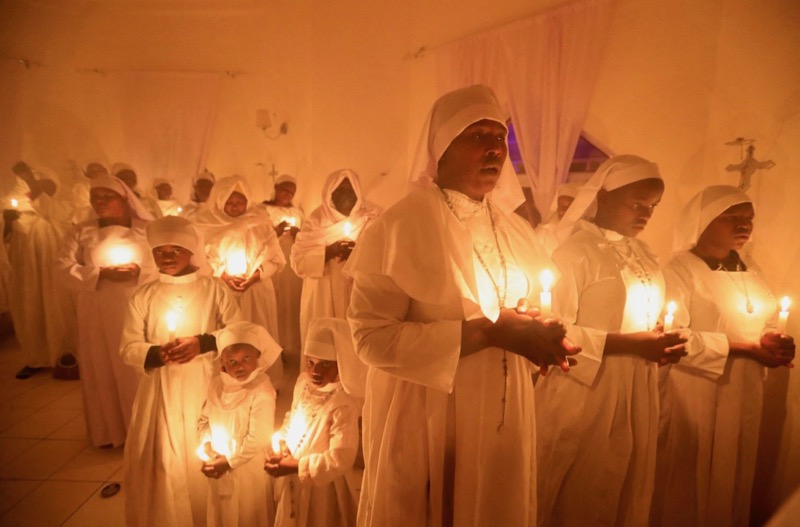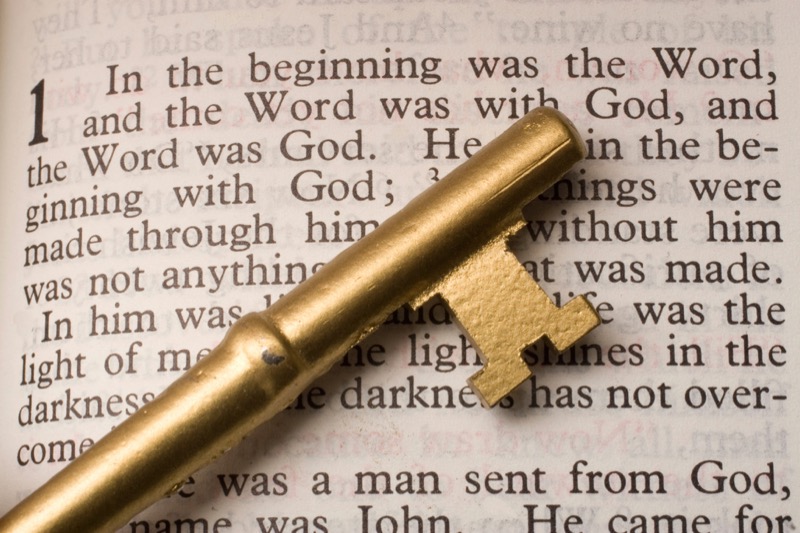All the other gospels begin with a narrative relating either the birth of Jesus or the beginning of his public ministry, or both. John’s gospel, uniquely, begins with sublime religious poetry. The prologue to his gospel both parallels and recapitulates the account of creation described in Genesis. The world’s beginning is now seen through the prism of Christ’s birth, the Word made flesh, the climax and completion of creation.
It begins, as does the first book of the Bible, with the words, “In the beginning”, making it clear that, from the first moment of time, the creation was pointing to the Incarnation. As such, the Incarnation illuminates every conceivable human experience and every corner of creation, rendering all existence, and human existence in particular, ultimately intelligible. How appropriate, then, that this gospel should be heard at the beginning of the new year, a new year still overshadowed by the continuing Covid crisis.
The last two years have brought us up against much that we all-too easily forget or prefer not to remember. We’ve been uncomfortably reminded, for instance, that all human endeavour, no matter how impressive and sophisticated, takes place in the context of forces and facts that are beyond our control.
We forget at our peril that nature is capable, at any moment, of turning our lives upside down. And yet, despite the great pain experienced by many, blessings, sometimes disguised, have come our way. The chastening of our pride and the puncturing of our hubris have restored for many of us a sense of priority and perspective, a keener sense of what matters most to us.
As we leave the year that has just passed, we should pray for the restoration in the coming year of all that we treasure most, especially the consoling presence of friends and family, but also for a willing readiness to let go of all we’ve come to realise we didn’t ever really need.
Even at the best of times, the beginning of a new year is ambivalent, inducing disparaging cynicism in some and easily deflated optimism in others. But neither is appropriate. Hope, “remembering forward”, is the virtue we need, the virtue that keeps us focussed on God’s promises, the virtue that sets our sights on the horizon ahead.
Unlike optimism, hope is rooted in the conviction that the light of God’s love shines not only in the sunlit, carefree days of happiness but also in times of deep disappointment and distress, and even in the seeming darkness of death. The precious gift of hope is rooted in the conviction that God’s purpose will be fulfilled in each of us; that even out of heartbreak and tragedy, he can and does bring forth blessings and goodness beyond our wildest imagining.
Of course, it goes without saying that, as we find ourselves at the threshold of another year, beset still by the pandemic, none of us has the faintest inkling of what the future. Whether young or old, healthy, or ill, we do not possess our own lives, let alone those of others, and it is not we who set the term of our life. But whatever the future brings, we can take heart that our life, the life which the Word of God now shares with us, is a gift, a gift given in Godly love.
For all its frailty, this nature of ours, assumed by the Word made flesh, is where we are privileged to live and love; and it’s in living with and loving one another that we most nearly and clearly see and know God.
So, we can have confidence to live each day of the coming year in peace with those around us, especially those closest and dearest to us, missing no opportunity to express and speak our love and gratitude, to them and to God. Whatever the new year brings, he is with us in our storm-tossed lives, and however faltering our faith, he will never not be with us. Even if we sometimes find it difficult to believe in him, he believes in us, utterly.
So, we can live, by God’s grace, in the fullness of hope, neither cynics nor optimists but hopeful realists. God’s Word is more eloquent than any that we ourselves may utter or hear from anyone else; and his forgiveness is more powerful than any lapse from grace, however grave, because his love is indefectible and forever.
Christmas and the arrival of a new year teaches us that we needn’t fear time’s passing, or anything that time brings, because it always brings us closer to our ultimate, goal. We can take heart from these words of the 18th century French Jesuit, Jean Pierre de Caussade (1675-1751), speaking of what he called the “sacrament of the present moment”: Leave the past to the infinite mercy of God; leave the future to his ever-compassionate providence…and, as for the present, give it over wholly to his love, by being, here and now, grateful for his gifts and faithful to his grace. Happy New Year.



 Loading ...
Loading ...
What do you think?
You can post as a subscriber user ...
User comments (0)